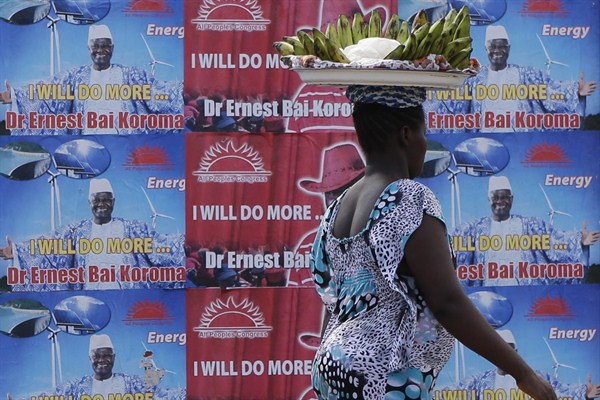In late April, on Sierra Leone’s independence day, police raided the headquarters of the opposition Sierra Leone People’s Party, firing shots and arresting supporters. In an email interview, Jimmy Kandeh, a professor at the University of Richmond, discussed the state of the opposition and domestic politics in Sierra Leone.
WPR: What are the opposition parties in Sierra Leone, and how broad is their support across the country?
Jimmy Kandeh: The main opposition party in Sierra Leone is the Sierra Leone People’s Party (SLPP), which, like the incumbent All People’s Congress (APC), is a blatantly corrupt patronage outfit. Founded in 1951, the SLPP led the country to independence in 1961 and was in power from 1961 to 1967 and again from 1996 to 2007. The SLPP’s main support base is in the south and east of the country. The party has struggled in recent years to gain electoral traction in the Northern province, one of Sierra Leone’s four administrative regions. Its inability to win a single parliamentary seat from the Western Area—the only swing region in the country—in the last two national elections in 2007 and 2012 calls into question the SLPP’s national credentials and the geographic diversity of its support. In short, neither the SLPP nor the incumbent APC are national parties in the sense of drawing their support from across all four regions of the country. Their support primarily comes from different ethnic groups.

